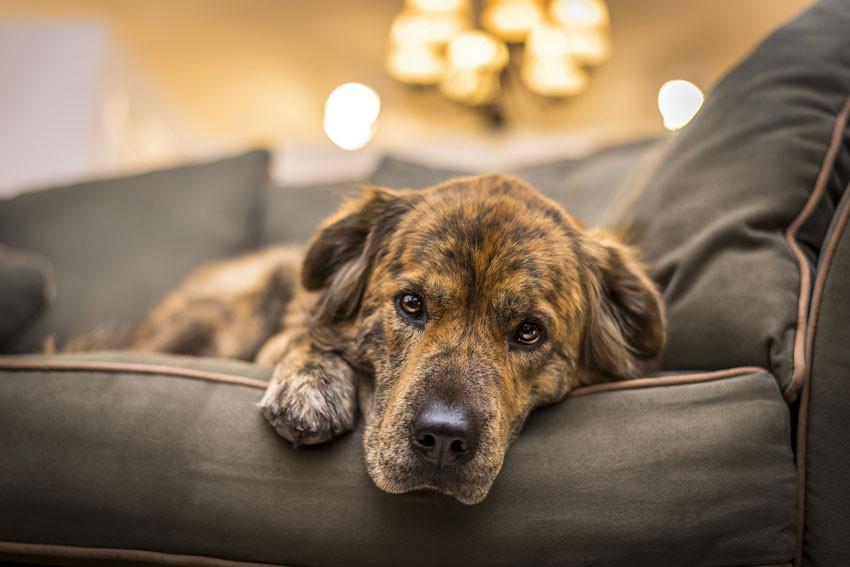We tend to think of dogs as naturally happy and loving, but what if they start exhibiting personality changes? Here are a few signs that your dog is down in the dumps.
Depression is a much-ignored and often untreated emotional condition in humans, so it stands to reason that we don’t necessarily recognize symptoms of depression in our pets. However, dogs can and often do become depressed, although it is typically connected with tangible, immediate changes in surroundings or routine, rather than the deep emotional malaise humans experience.
It is very important to recognize changes in personality or mood in dogs, since these are often indications of an underlying problem. Here are a few signs that your pup may be feeling blue.
- Their appetite is reduced. Sometimes dogs are just being picky, but if your dog’s eating habits are noticeably different, they may be experiencing a depressed mood.
- They don’t enjoy or ask for walks. Lethargy or lack of interest in going for walks or playing is a sign that your pooch isn’t feeling like themselves.
- They become aggressive. Exhibiting aggression, whining, or howling are all signs that your dog could be depressed.
Reasons why your dog could be depressed.
Dogs aren’t typically prone to hormonal mood swings in the way humans are, so there is likely an easily understandable explanation as to why your dog is depressed or exhibiting signs of depression. Here are common reasons why dogs can get depressed:
- Loss of a friend or owner
- Moving into a new environment
- Change of routine
- Anxiety in the household
- Illness
- Abuse
Always check with your vet to make sure there aren’t any illnesses or injuries affecting your dog’s behavior. Even if you make sure your dog is active and you’re feeding them consistently nutritious foods (if your dog isn’t on a vet-recommended meal program to address a specific condition, good dog food brands to try include Nutrish, Origen, and Zignature). DCM, obesity, and kidney disease are three serious, mood-affecting conditions that are directly influenced by a dog’s diet.
If your vet doesn’t find anything medically wrong with your pet, consider how any changes in their environment may have affected their mood. Did they lose a friend? Has someone they’ve grown attached to stopped visiting? Are you feeling anxious or stressed, which might be causing your dog to feel unsettled? Is there someone – or another pet – who might be abusing your dog?
Once you’ve determined the cause of your dog’s depression, you can begin to address it. Dogs are very emotionally responsive, so once you create a happy and healthy home environment, your pup will go back to their old, cheerful self!
I’m a dog lover and proud pet-parent of two feisty rescue girls. My hobbies include writing about dogs and taking photos of my girls in embarrassing sweaters.

Leave a Reply